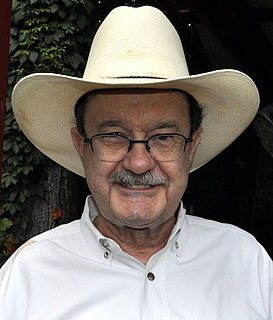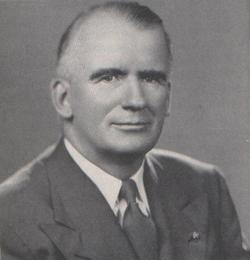A Quote by Gordon B. Hinckley
Something happens inside of us when we are courteous and deferential toward others. It is all part of a refining process, which if persisted in, will change our very natures.
Related Quotes
Everything happens through immutable laws, ...everything is necessary... There are, some persons say, some events which are necessary and others which are not. It would be very comic that one part of the world was arranged, and the other were not; that one part of what happens had to happen and that another part of what happens did not have to happen. If one looks closely at it, one sees that the doctrine contrary to that of destiny is absurd; but there are many people destined to reason badly; others not to reason at all others to persecute those who reason.
Consciousness and Healing To proceed very far through the desert, you must be willing to meet existential suffering and work it through. In order to do this, the attitude toward pain has to change. This happens when we accept the fact that everything that happens to us has been designed for our spiritual growth.
And what we're looking toward is a moment when the artificial language structures which bind us within the notion of ourselves are dissolved in the presence of the realization that we are a part of nature. And when that happens, the childhood of our species will pass away, and we will stand tremulously on the brink of really the first moment of coherent human civilization.
Many people think that when we practice agriculture, nature is helping us in our efforts to grow food. This is an exclusively human-centered viewpoint... we should instead, realize that we are receiving that which nature decides to give us. A farmer does not grow something in the sense that he or she creates it. That human is only a small part of the whole process by which nature expresses its being. The farmer has very little influence over that process... other than being there and doing his or her small part.
A wider of more altruistic attitude is very relevant in today's world. If we look at the situation from various angles, such as the complexity and inter-connectedness of the nature of modern existence, then we will gradually notice a change in our outlook, so that when we say 'others' and when we think of others, we will no longer dismiss them as something that is irrelevant to us. We will no longer feel indifferent.
When we seek daily spiritual guidance, we are guided toward the next step forward for our art. Sometimes the step is very small. Sometimes the step is, "Wait. Not now." Sometimes the step is, "Work on something else for a while." When we are open to Divine Guidance, we will receive it. It will come to us as the hunch, the inkling, the itch. It will come to us as timely conversations with others. It will come to us in many ways--but it will come.
Glad and merry and sweet is the blessed and lovely demeanour of our Lord towards our souls, for he saw us always living in love-longing, and he wants our souls to be gladly disposed toward him . . . by his grace he lifts up and will draw our outer disposition to our inward, and will make us all at unity with him, and each of us with others in the true, lasting joy which is Jesus.
Stop thinking about art works as objects, and start thinking about them as triggers for experiences... That solves a lot of problems ... Art is something that happens, a process, not a quality, and all sorts of things can make it happen ... [W]hat makes a work of art 'good' for you is not something that is already 'inside' it, but something that happens inside you.
I have a feeling-as compelling as a religious conviction-that if industry will constantly pass on to the worker and the customer all the savings of labor-saving machinery and invention, rather than siphon them off into the pools of watered securities, it will by that process keep distribution and production in balance and go as far toward Utopia as our poor human natures will go or be driven.
If one looks at all closely at the middle of our own century, the events that occupy us, our customs, our achievements and even our topics of conversation, it is difficult not to see that a very remarkable change in several respects has come into our ideas; a change which, by its rapidity, seems to us to foreshadow another still greater. Time alone will tell the aim, the nature and limits of this revolution, whose inconveniences and advantages our posterity will recognize better than we can.
Although our moral conscience is a part of our consciousness, we do not feel ourselves on an equality with it. In this voice which makes itself heard only to give us orders and establish prohibitions, we cannot recognize our own voices; the very tone in which it speaks to us warns us that it expresses something within us that is not of ourselves.






































